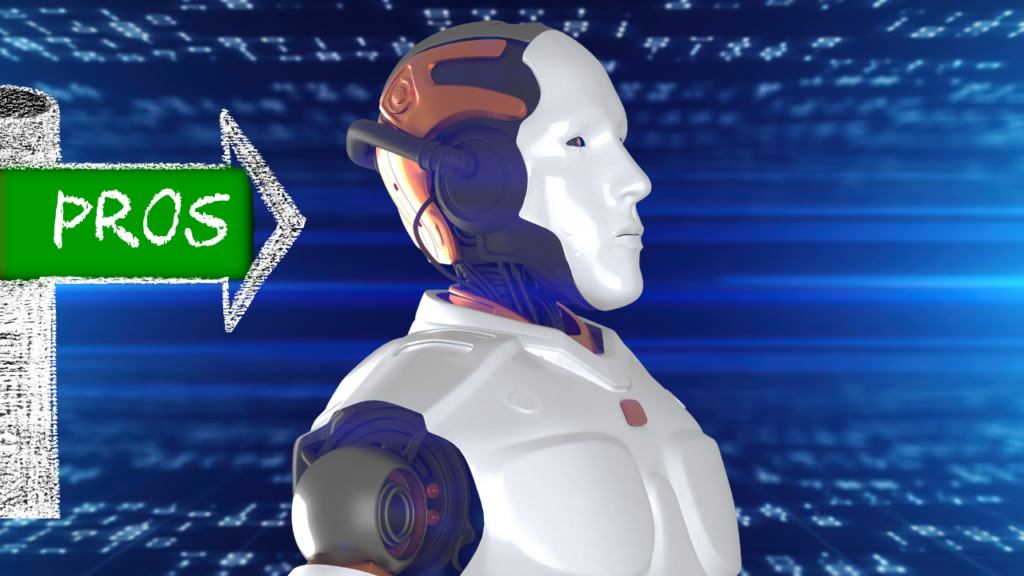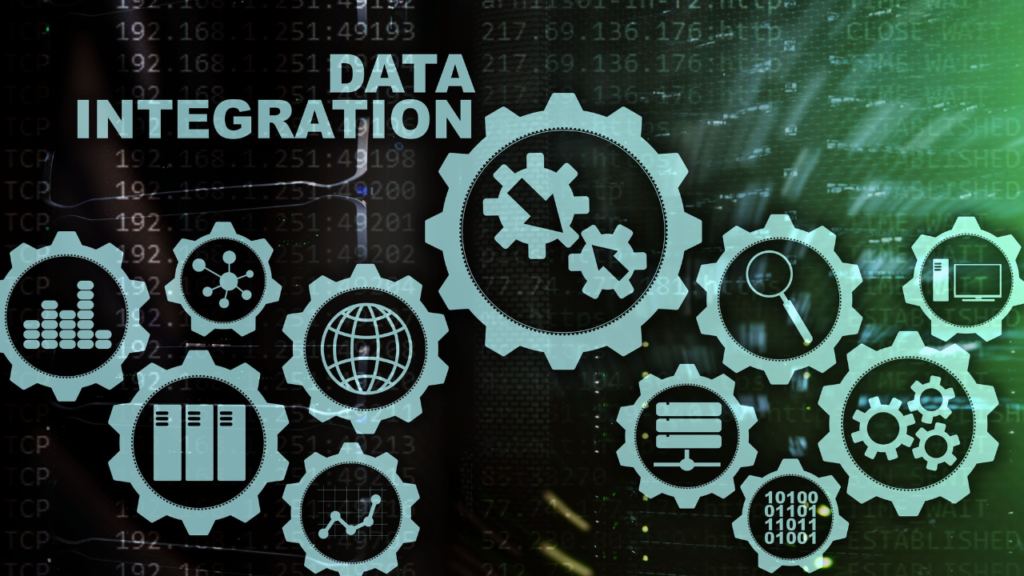Introduction to AI Automation Agencies
An AI automation agency is a specialized firm that leverages artificial intelligence technologies to streamline business processes and enhance operational efficiency. These agencies utilize advanced algorithms, machine learning, and data analytics to automate repetitive tasks, enabling organizations to focus on strategic initiatives. As the demand for automation grows, these agencies have emerged as vital partners for businesses looking to stay competitive in an increasingly digital landscape.
Typically, AI automation agencies offer a range of services, including process automation, data analysis, and customer engagement solutions. By integrating AI into various business functions, these agencies help organizations reduce human error, increase productivity, and optimize resource allocation. The rise of AI automation has been fueled by the need for businesses to adapt to changing market conditions and consumer expectations.
Moreover, the versatility of AI technologies allows these agencies to cater to diverse industries, from healthcare to finance, retail to manufacturing. As companies grapple with the complexities of digital transformation, AI automation agencies provide the expertise and tools necessary to navigate this evolving landscape. Their role is not just about implementing technology; it’s about fostering innovation and driving growth through intelligent automation.
Pros of Using an AI Automation Agency

AI automation agencies offer a multitude of advantages that can significantly enhance business operations. One of the most compelling benefits is increased efficiency. By automating repetitive tasks, these agencies allow companies to focus on more strategic initiatives. This not only saves time but also reduces the likelihood of human error, leading to improved accuracy in processes.
Another significant advantage is the cost savings associated with automation. While there may be an initial investment in AI technology, the long-term savings can be substantial. Businesses can reduce labor costs and allocate resources more effectively, ultimately improving their bottom line.
Moreover, AI automation agencies provide scalability. As a business grows, its operational needs change. AI solutions can be easily scaled to accommodate increased workloads without the need for extensive hiring or training. This flexibility is particularly beneficial for startups and small businesses looking to expand.
Additionally, these agencies often come equipped with advanced analytics capabilities. By leveraging data, businesses can gain valuable insights into customer behavior and operational efficiency. This data-driven approach enables informed decision-making and helps companies stay competitive in their respective markets.
Lastly, partnering with an AI automation agency can lead to enhanced customer experiences. Automated systems can provide quicker response times and personalized interactions, which are crucial in today’s fast-paced business environment. This not only boosts customer satisfaction but also fosters loyalty, ultimately driving revenue growth.
Cons of Using an AI Automation Agency

While AI automation agencies offer numerous advantages, they also come with a set of challenges that organizations must consider. One significant concern is the potential loss of jobs. As automation takes over repetitive tasks, employees may find their roles diminished or even eliminated, leading to workforce displacement. This can create a ripple effect, impacting employee morale and company culture.
Another drawback is the initial investment and ongoing costs. Although AI solutions can lead to long-term savings, the upfront costs for implementation, training, and maintenance can be substantial. Companies may struggle to justify these expenses, especially if the return on investment is not immediately apparent.
Moreover, there is the issue of reliability and accuracy. AI systems are not infallible; they can make mistakes or misinterpret data, leading to costly errors. This is particularly concerning in sectors where precision is critical, such as healthcare or finance. Businesses must weigh the risks of relying on technology that may not always perform as expected.
Additionally, limited customization can be a significant drawback. Many AI automation solutions are designed to serve a broad audience, which may not align perfectly with the specific needs of every organization. This can result in a one-size-fits-all approach that fails to address unique challenges.
Finally, there are security and compliance issues to consider. As organizations increasingly rely on AI, they must ensure that their systems comply with regulations and protect sensitive data. The integration of AI can introduce vulnerabilities that may be exploited by cybercriminals, making it essential for companies to invest in robust security measures.
When evaluating the financial implications of engaging an AI automation agency, it is essential to conduct a thorough cost-benefit analysis. This analysis should encompass both direct and indirect costs associated with the implementation of AI solutions. Initial investment costs can vary significantly based on the complexity of the automation required, the technology stack, and the agency’s expertise. However, many businesses find that the long-term savings often outweigh these initial expenditures.
One of the primary benefits of utilizing an AI automation agency is the potential for increased efficiency. By automating repetitive tasks, organizations can redirect their human resources towards more strategic initiatives. This shift not only enhances productivity but also fosters innovation. Additionally, AI systems can operate around the clock, leading to higher output without the constraints of traditional work hours.
- Cost Savings: Reduced labor costs and minimized errors can lead to significant financial savings over time.
- Scalability: AI solutions can be scaled up or down based on business needs, providing flexibility in resource allocation.
- Improved Decision-Making: AI can analyze vast amounts of data quickly, offering insights that can inform better business decisions.
However, it is crucial to consider the potential downsides. The reliance on AI may lead to unforeseen costs, such as maintenance and updates, which can accumulate over time. Furthermore, the integration of AI systems may require additional training for staff, adding to the overall expenditure. Therefore, a comprehensive understanding of both the benefits and the potential hidden costs is vital for making an informed decision regarding the use of AI automation agencies.
The rise of AI automation agencies is reshaping the workforce landscape in profound ways. As businesses increasingly adopt automated solutions, the nature of job roles is evolving. Routine tasks that once required human intervention are now being handled by sophisticated algorithms and machines. This shift can lead to a significant reduction in demand for certain positions, particularly in areas like data entry, customer service, and basic administrative roles.
However, it’s not all doom and gloom. The integration of AI technologies also creates new opportunities. Emerging roles in AI management, data analysis, and machine learning are becoming essential. Workers will need to adapt by acquiring new skills that complement these technologies. Upskilling and reskilling initiatives are crucial for employees to remain relevant in the job market.
Moreover, the collaboration between humans and AI can enhance productivity. For instance, professionals can focus on strategic decision-making and creative problem-solving, while AI handles repetitive tasks. This synergy can lead to increased job satisfaction as employees engage in more meaningful work.
Nevertheless, the transition can be challenging. Many workers may feel threatened by the prospect of automation, leading to anxiety and resistance. Organizations must prioritize effective communication and support systems to help employees navigate these changes. Providing training programs and resources can ease the transition and foster a culture of innovation.
In summary, while AI automation agencies are transforming job roles and workforce dynamics, they also present opportunities for growth and development. The key lies in embracing change and equipping the workforce with the necessary skills to thrive in an increasingly automated world.
Security and 
As businesses increasingly turn to AI automation agencies, security and data privacy have emerged as critical concerns. The integration of AI technologies often involves the collection and processing of vast amounts of sensitive data, including customer information, financial records, and proprietary business insights. This raises significant questions about how securely this data is stored and managed.
One of the primary risks associated with AI automation is the potential for data breaches. Cybercriminals are constantly evolving their tactics, and automated systems can sometimes be vulnerable to sophisticated attacks. Organizations must ensure that their chosen AI automation agency employs robust security measures, such as:
- Encryption: Data should be encrypted both in transit and at rest to prevent unauthorized access.
- Access Controls: Implementing strict access controls ensures that only authorized personnel can access sensitive information.
- Regular Audits: Conducting regular security audits can help identify vulnerabilities before they are exploited.
Moreover, compliance with data protection regulations, such as the General Data Protection Regulation (GDPR) and the California Consumer Privacy Act (CCPA), is essential. Companies must ensure that their AI automation partners adhere to these regulations to avoid hefty fines and reputational damage. This compliance includes obtaining explicit consent from users for data collection and providing transparency about how their data will be used.
Another aspect to consider is the potential for bias in AI algorithms, which can inadvertently lead to discriminatory practices. If the data used to train AI systems is not representative or is flawed, it can result in biased outcomes that affect decision-making processes. Therefore, organizations must work closely with their AI automation agencies to ensure that ethical considerations are prioritized in the development and deployment of AI solutions.
In summary, while AI automation agencies offer numerous benefits, the associated security and data privacy concerns cannot be overlooked. Organizations must conduct thorough due diligence when selecting a partner, ensuring that they prioritize data protection and ethical practices to safeguard their interests and those of their customers.
Integrating AI automation into existing business processes can be a complex endeavor. Organizations often face a myriad of challenges that require careful planning and execution. One of the primary hurdles is ensuring compatibility between new AI systems and legacy software. Many companies operate on outdated platforms that may not support modern AI technologies, leading to potential disruptions in workflow.
Moreover, the technical expertise required to implement and maintain AI solutions is not always readily available within the organization. This can necessitate hiring new talent or investing in training for existing staff, both of which can be time-consuming and costly. Additionally, the integration process itself can be fraught with unforeseen complications, such as data migration issues or system outages, which can hinder productivity during the transition period.
Another critical consideration is the scalability of the AI solutions being implemented. As businesses grow, their automation needs may evolve, requiring systems that can adapt accordingly. Organizations must evaluate whether their chosen AI tools can scale effectively without necessitating a complete overhaul of their infrastructure.
Furthermore, there are often interdepartmental challenges to consider. Different teams may have varying levels of readiness for adopting AI technologies, leading to resistance or lack of engagement. Ensuring that all stakeholders are on board and understand the benefits of automation is crucial for a smooth integration process.
Finally, ongoing technical support is essential. Once AI systems are in place, businesses must have access to reliable support to troubleshoot issues and optimize performance. This can involve establishing partnerships with AI vendors or investing in in-house IT capabilities to ensure that the technology continues to meet the organization’s needs over time.






